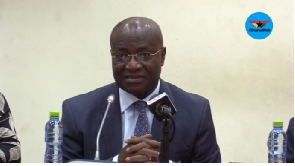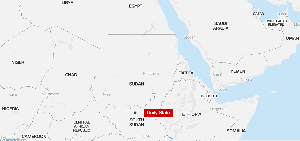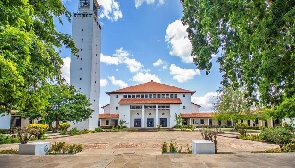The Minister for Parliamentary Affairs, Osei Kyei-Mensa-Bonsu, has said that the Ghanaian voters are partly to blame for the monetization that has characterized the road to occupying political office.
He said, the demands made by voters in every aspect of the country’s political dispensation, has left aspirants to political leadership to make monetary influence an obvious means to attaining political power.
According to him, when this demand for money happens, the outcome is that those who buy their way to power, eventually become corrupted and that represents the verdict of the voters.
Speaking at a national stakeholders consultation on monetization of politics in Ghana on Monday ,the Minister, who is also the Majority Leader in Parliament noted that there was no father Christmas in politics and that the expenses made by a politician through the demands from the voters will be recouped one way or the other when power is won.
The stakeholders' consultation was organized by the Ministry of Parliamentary Affairs. It was aimed at interrogating the intraparty election that breed the concept of monetization and its implications for influence, corruption and capture and whether these arrangements can effectively safeguard Ghana’s democracy.
According to a research by the Westminster Foundation for Democratic Development , about $86,000 is needed in running for the position of a Member of Parliament (MP).
This amount, the research said, does not include the cost of the election itself.
The cost of running for the Member of Parliament according to the research is unsustainable and it is in the view of this that the Ministry of Parliamentary Affairs and the leadership of Parliament, have unanimously embark on an exercise to sanitize the system as a way of curbing the menace of monetization and the repercussions it has on the country.
Making a presentation, the keynote speaker at the stakeholders consultation Prof. Joseph Atsu Aryee of the University of Ghana Science Department ,was of the view that in order to reverse this trend, there is the need to pay attention to the illegal financial transactions by the political parties themselves .
He said, although there are laws and regulations which are important, there should be a system that will empower the citizens to demand accountability.
He said, the political parties should also adopt code of conducts that will allow for the members of the political parties to declare their assets and the publishing of their details which he added is needed to ensure transparency.
The Chairman of the Peace Council, Prof Emmanuel Asante, who was the Chairman for the occasion recounted his experience with monetization in politics.
So many years ago, he said he was an Assemblyman for an electoral area in one of the rural communities. Later, the Assembly wanted to make him the Presiding Member because of his performance which required voting by the Assemblymen and women.
According to him , he lost by two votes on two occasions only for him to be told later by one of the Assembly members that they were expecting him to pay ‘something’ to the members.
All these activities which monetizes the political system , he noted breeds corruption and affects the sincerity in politics, as well as it potential to destroy good human resource of the country.
General News of Friday, 12 July 2019
Source: theheraldghana.com

















